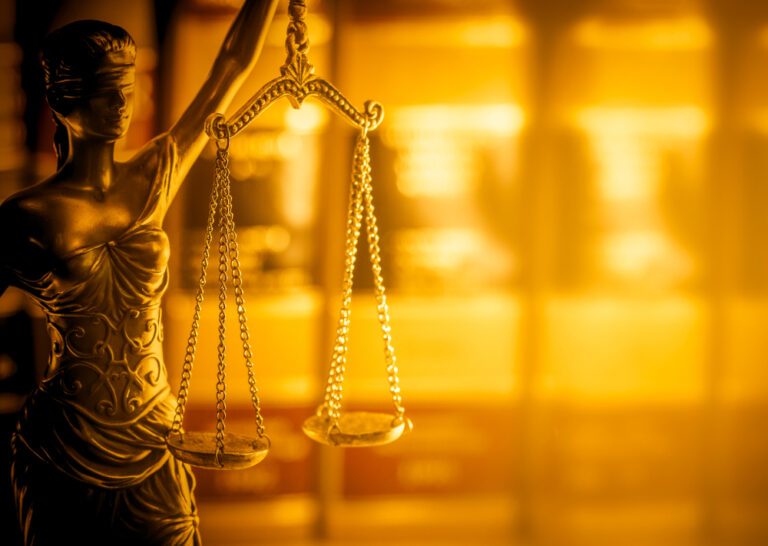Ethics Opinion 1264: Listing of Degrees by Attorney Working in Nonlegal Capacity
3.4.2024

TOPIC: Listing of Degrees by Attorney Working in Nonlegal Capacity
DIGEST: An attorney who has earned a juris doctor degree may use a “J.D.” designation on letterhead and business cards while working in a nonlegal capacity as long as the lawyer takes care to ensure that any relevant audience is not misled to believe that he or she is acting in a legal capacity.
RULES: 1.0(a), 7.1(a) & (b), 8.4(c), 8.5(a) & (b)
FACTS:
- The inquirer is admitted to practice in New York State and is working remotely from New York as a development officer for a university located in another state. The university would like the inquirer to use the “J.D.” (“Juris Doctor”) designation after his name on letterhead and business cards.
QUESTION:
- May a New York lawyer use the “J.D.” designation on letterhead and business cards while working remotely from New York State as an employee of a university in another state?
OPINION:
- In N. Y. State 1089 (2016), we noted that “[a] New York lawyer is bound by the New York Rules of Professional Conduct [the “Rules”], not only with respect to law practice but also with respect to nonlegal activities, both personal and professional.” We also opined in Opinion 1089 that “when a lawyer engages in a non-legal business, it is not misleading for the lawyer to identify himself or herself as a lawyer – but a lawyer who does so must take care to avoid confusion. The lawyer must ensure that any relevant audience is not misled to believe that the lawyer is acting as a lawyer.”
- Rule 7.1(b) states that “an advertisement may include information as to: (1) legal and nonlegal education; degrees and other scholastic distinctions.” The inquirer’s proposed communications as a development officer are not “advertisements” under the Rules because “the primary purpose of [the communications]” is not “for the retention of the lawyer or law firm.” Rule 1.0 (a) (“‘Advertisement’ means any public or private communication made by or on behalf of a lawyer or law firm about that lawyer or law firm’s services, the primary purpose of which is for the retention of the lawyer or law firm.”). It must be noted, however, that even beyond the context of advertising, Rule 8.4(c) prohibits lawyers from engaging in “conduct involving dishonesty, fraud, deceit or misrepresentation.”
- This Committee and another ethics committee in New York have opined that when a lawyer engages in a non-legal enterprise, such as working in university’s development office (as the inquirer does here), “it is not misleading for the lawyer to identify himself or herself as a lawyer.” N.Y. State 1089; see also N.Y. City 1994-5 (1994) (opining that an attorney may properly append the suffix “Esq.” to his or her name when not acting in a legal capacity). Similarly, we do not believe that the use of the designation “J.D.” on letterhead or a business card by one who has earned a juris doctor degree constitutes “dishonesty, fraud, deceit or misrepresentation” in violation of Rule 8.4(c). See N.Y. State 105(a) (1969) (opining that a lawyer may “list any earned law degrees” including J.D. and LL.M.). We repeat, however, that the inquirer must take care to avoid confusion and “must ensure that any relevant audience is not misled to believe that the [inquirer] is acting as a lawyer” when the lawyer engages in a non-legal capacity. See N. Y. State 1089 (discussing various ways to dispel any such confusion).
- The inquirer has only disclosed being licensed as an attorney in New York State. If the inquirer is also licensed in another jurisdiction, however, then pursuant to Rule 8.5(a) he may be “subject to the disciplinary authority of both this state [New York] and another jurisdiction where the lawyer is admitted for the same conduct.” In other words, if the inquirer is licensed as an attorney in another jurisdiction outside of New York, then his proposed conduct may also be regulated by the professional conduct rules of that other jurisdiction, and the analysis under the other jurisdiction’s rules of professional conduct may lead to a different conclusion, especially if the other jurisdiction has adopted a different version of Rule 8.5(b). Compare ABA Model Rule 8.5(b) with New York Rule 8.5(b).
- If the inquirer is admitted only in New York, then the New York Rules of Professional Conduct will apply. See Rule 8.5(b)(2)(i) (“If the lawyer is licensed to practice only in this state, the rules to be applied shall be the rules of this state”). But if the inquirer is admitted in New York and in another jurisdiction, then under New York Rule 8.5(b) the answer will depend on whether or not the inquirer’s conduct occurs in connection with a proceeding in a court before which the inquirer has been admitted.
- If the inquirer’s conduct occurs in connection with a proceeding in a court before which he has been admitted (permanently or pro hac vice), then Rule 8.5(b)(1) governs, and ordinarily the rules of the jurisdiction where the court sits will apply.
- For all other conduct (including conduct of any kind not in connection with a court proceeding), then Rule 8.5(b)(2)(ii) governs, and the main questions will be where the inquirer “principally practices” and where the “predominant effect” of his conduct clearly occurs. Answering those questions requires a complex, multi-factored analysis. See N.Y. State 1027 (2014) (analyzing Rule 8.5(b) line by line). We do not undertake that analysis because we do not know whether the inquirer is licensed to practice in a jurisdiction other than New York, but if he is licensed outside New York, then he should undertake that analysis himself.
CONCLUSION
- A lawyer who has earned a juris doctor degree may use a “J.D.” designation on letterhead and business cards while working in a nonlegal capacity as long as the lawyer takes care to ensure that any relevant audience is not misled to believe that he or she is acting in a legal capacity.
(21-23)






